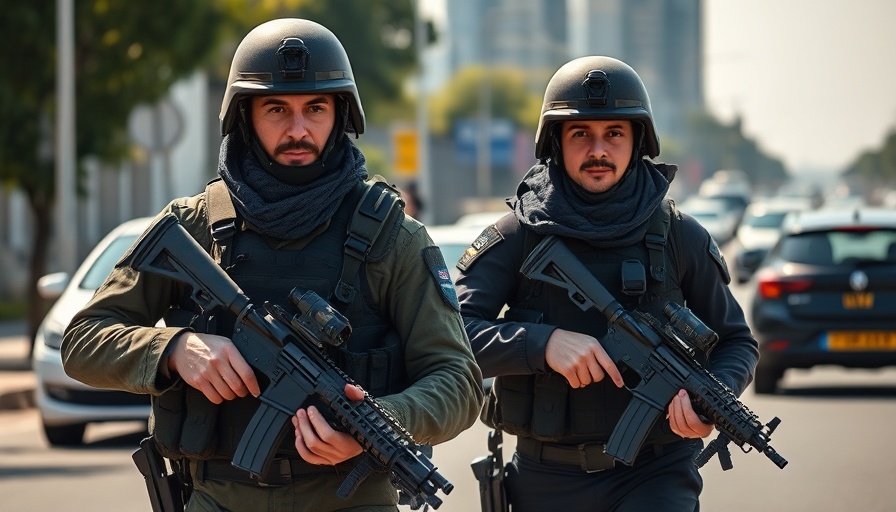
The Rising Tensions in Hebron: A Cautionary Tale
In the wake of simultaneous terror attacks occurring in the Hebron Hills and Samaria, the complexities surrounding the Israeli-Palestinian conflict become starkly apparent. On May 7, 2025, three individuals suffered injuries from separate but connected incidents involving gunfire and attempts at vehicular attacks near sensitive areas. A terrorist shooting at a vehicle near the Reihan crossing and another assailant attempting a ramming and stabbing attack in the heart of Hebron reveal a troubling pattern of escalating violence.
Understanding the Context of Violence
This recent surge in aggression is not an isolated incident but echoes the broader tensions that have plagued the region for decades. Religious, cultural, and political factors all intertwine to create an environment ripe for conflict. For supporters of Israel and advocates for Palestinian rights—especially those interested in humanitarian perspectives—these attacks serve as a powerful reminder of the volatile nature of the region.
Why These Attacks Matter to Global Communities
For Christians worldwide, the events transpiring in places like Hebron resonate deeply. Many believers are not only concerned with the humanitarian aspects of these attacks but also with the ongoing implications for religious freedom and security for Christians living in the Holy Land. It is crucial for faith communities to remain engaged and informed as they navigate these troubled waters.
The Personal Impact: Voices from the Ground
Individuals directly affected by such attacks often bear the emotional scars long after the headlines fade. In recent interviews, survivors and their families have spoken about their fears and hopes, emphasizing the need for dialogue over violence. They remind us that behind every news story are real lives shattered by conflict.
Counterpoints To the Current Narratives
There are often competing narratives surrounding incidents like these. Some argue fiercely that the Israeli government's policies towards Palestinians only exacerbate tensions, while others assert that such attacks justify a continued military presence. As advocates for peace and understanding, it's important to navigate these narratives with care and compassion.
Looking Ahead: A Call for Peaceful Resolution
Despite the grim realities of ongoing violence, there remains hope for a peaceful future. Faith leaders from various backgrounds emphasize the importance of interfaith dialogue and collective action as ways to promote understanding and healing. Now, more than ever, these discussions must take center stage, not only to advocate for security but also to champion human rights and dignity for all.
Conclusion: What You Can Do
As members of traditionally supportive Christian communities, it is crucial to stay informed and engaged with the plight of those affected by violence in the Middle East. Advocacy can take many forms—whether through prayer, education, or active participation in humanitarian efforts. Your voice matters, and it can contribute to a greater push for peace in a region yearning for resolution.
Join the conversation about the challenges faced by Christians in the Holy Land, advocate for their rights, and support initiatives that promote dialogue and reconciliation. Every effort counts toward fostering a just and peaceful future.
 Add Row
Add Row  Add
Add 








Write A Comment